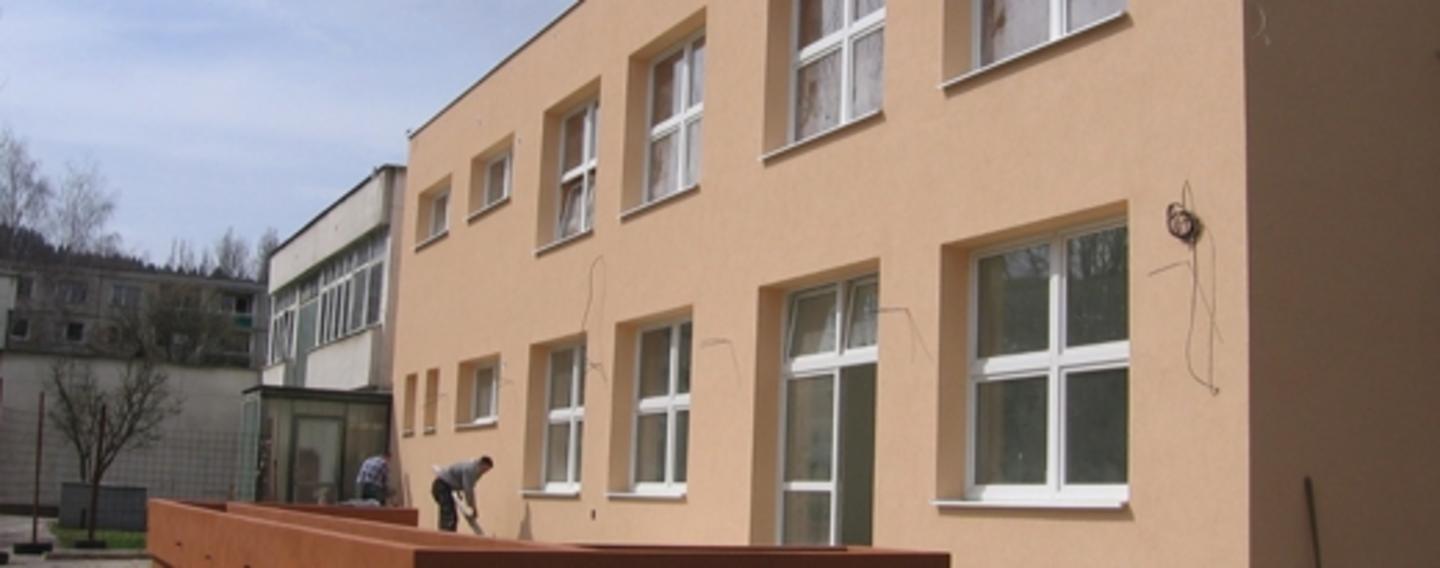With support from the EEA and Norway Grants, the City of Bratislava and the City of Povaská Bystrica in Slovakia are about to establish 2 new crisis centres. Extensive renovation works are ongoing to transform a former pre-school and a former kindergarten into institutions that can provide a safe base for persons in imminent danger.
The first crisis centre in Povaská Bystrica
In Povaská Bystrica in northwestern Slovakia there are today no institutions providing protection and support to victims of domestic violence. According to the city administration, approximately 200 persons in the region are in need of help to solve social problems in their families. The head of the municipality’s social services, Janka Dudonova, stresses the growing need for shelter space, especially by women with children. "When women have a problem today, they can turn to us or the police. But after having received advice on how to arrange divorce or file a criminal complaint, they still have to stay with the perpetrator at home. We cannot provide accommodation", she says.
To approach the situation systematically, the city is not only building a temporary accommodation centre for victims of violence, it also wishes to provide psychological, social and legal counselling and to introduce an active programme for prevention of violence in cooperation with other relevant institutions in the region.
The new centre, which will open this summer, will have the capacity to provide temporary accommodation for 20 women, men and children as well as space for counselling and training. With an expected staying length of 3-6 months, the centre aims to provide services for altogether 70 persons on a yearly basis.
Facilitating the return to normal life
The crisis centre being established in Bratislava will have the capacity to provide accommodation to 46 persons, and is set up to help all kinds of people in a crisis situation. "In practice this means that the crisis centre will not only be focusing on victims of domestic violence, but also on children, families and adults who are in a crisis situation", says project manager Jana Zálesòáková.
Today the City of Bratislava administers 2 dormitories in Bratislava, which provide housing primarily to socially disadvantaged persons as well as to persons in life crisis situations. Because of the limited capacity, applicants may have to wait for several months for a room to become vacant. Furthermore, the dormitories provide only material assistance, like housing, and no specialist support for clients in crisis. The new shelter will also provide professional counselling to facilitate the client’s return to normal life in Bratislava after overcoming severe situations threatening their wellbeing or their lives.
The 2 crisis centres in Slovakia are established with support from and exchange of knowledge with the Secretariat of the Shelter Movement in Norway. "Having run crisis centres for 32 years, we have some experiences to share when it comes to establishing shelters as well as awareness-rising and prevention with regard to strengthening women’s rights in general", says Director Tove Smaadahl of the Secretariat of the Shelter Movement.
Photo credit: The City of Povaská Bystrica
